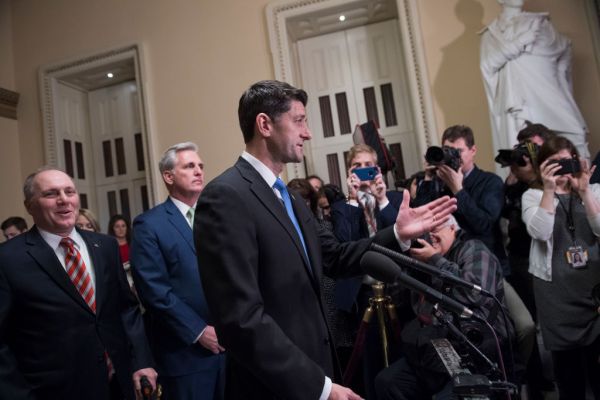The Republican tax bill is ready for the president’s signature. After forcing its second vote in two days, the bill passed the House with a vote of 224 to 201. The bill previously cleared the Senate with a narrow 51-48 vote along party lines, though Republican Senator John McCain was unable to cast a vote as he undergoes cancer treatment in his home state. Now the only thing standing between $1.5 trillion in tax cuts and law is a signature from its biggest proponent.
The bill remaps current income tax brackets, slashes individual tax rates for the wealthiest Americans, doubles the standard deduction to $12,000 for individual filers and famously issues a massive, much salivated over cut to the corporate tax rate, lowering it from 35 percent to 21 percent. The piece of legislation is an eleventh-hour win for Republicans, who have failed to pass any meaningful legislation during Trump’s first year in office in spite of controlling the House, Senate and presidency.
While Republicans posit that the sum $1.5 trillion in tax cuts for corporations and top earners will trickle down to middle-class workers, the bill’s many vocal critics argue that cuts at the top will only further enhance the wealth of shareholders and executives.
For all of its public cultural friction with the Trump administration, Silicon Valley is quietly celebrating the windfall — specifically a portion that will allow major tech companies to repatriate the vast wealth they store overseas to evade what many in the industry view as overly aggressive domestic corporate taxation. Companies with substantial offshore cash stores like Apple, Google and Microsoft will be able to bring that money back stateside at a one-time taxation rate of 15.5 percent, a massive cut from the current rate of 35 percent.
For tech’s “big five” (Apple, Amazon, Google, Facebook and Microsoft), a massive push in Washington — reflected in a 24.3 percent quarter over quarter spike in lobbying spending, much of which was focused directly on the tax bill — just paid off in spades.
